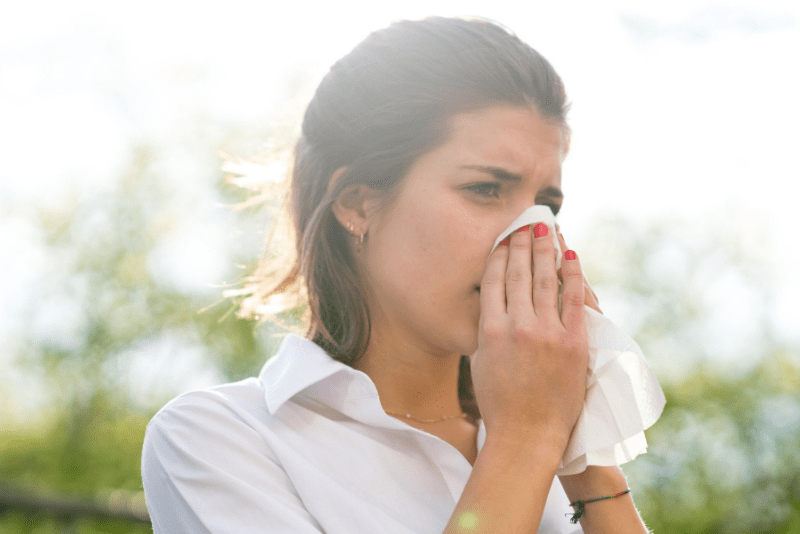Anaphylaxis is a severe, allergic reaction experienced by one in 50 Americans and, while rare, can be life-threatening. Those who experience anaphylaxis are at risk of death if left untreated. Before analyzing the symptoms of this allergic reaction, it is important to identify the triggers.
Anaphylaxis: Triggers
Anaphylaxis can be caused by a variety of factors, including food and environmental triggers. These are the most common triggers to watch out for:
Foods, including peanuts, tree nuts, shellfish, fish, milk, eggs, etc.
Stinging insects, including fire ants, wasps, and bees.
Medications, such as antibiotics and anti-inflammatories, like aspirin.
Latex, commonly found in balloons and rubber gloves.
Anaphylaxis: Symptoms
The symptoms of anaphylaxis typically occur within minutes of exposure but can develop up to a half hour or longer after. Over time, symptoms may worsen, which is why it is vital that you seek medical attention immediately if you or someone around you is experiencing this severe allergic reaction. The most common symptoms of anaphylaxis include:
- Lightheadedness due to a drop in blood pressure
- Difficulty breathing/swallowing
- Elevated heart rate
- Clammy/flushed skin
- Hives or generalized itching
- Swollen tongue/throat
- Nausea
- Vomiting
- Diarrhea
Anaphylaxis: Treatments
If you are experiencing symptoms of anaphylaxis for the first time, make sure to seek immediate medical help, as the symptoms can be life-threatening. Once you are medically stable, it is important to:
- Schedule an appointment with your board-certified allergist to see if it is possible to identify the cause of the allergic reaction.
- The allergist may recommend you implement measures to decrease your risk of anaphylaxis in the future. Epinephrine auto-injectors (like EpiPen, AuviQ) are the only life-saving treatment for anaphylaxis. It is important to discuss technique and indications for use with your doctor. After the use of an EpiPen, it is advised to still seek medical treatment.
Seek help from our allergy experts
Allergies can be deadly, but that doesn’t mean your life should be put at risk. Our team at Charleston Allergy and Asthma understands the importance of not only identifying allergies but taking the right measures to ensure that you or a loved one avoids anaphylaxis. Book an appointment with one of our board-certified allergists today.




